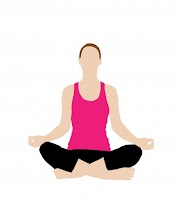Best Yoga Books for Beginners: Your Guide to Starting Right
Embarking on a yoga journey offers not only physical benefits but also mental and spiritual growth. But where does one begin? With so many resources available, it can be overwhelming to select the right guide. This article aims to shed light on the best yoga books for beginners. Not only will these books offer you step-by-step guidance, but they'll also provide a strong foundation in the philosophy and lifestyle that yoga embodies.
Why Books Over Apps or Videos?
In today's digital age, the first instinct may be to download an app or follow a YouTube channel. While these resources are valuable, they can lack the depth and permanence of a well-written book. Here's why books make for an excellent resource:
- Depth of Information: Books often offer a more comprehensive look into the practice and philosophy of yoga, ranging from poses to ancient scriptures.
- Self-paced Learning: With a book, you control the pace of your learning, easily revisiting topics and absorbing the material at your own speed.
- No Screen Time: Yoga aims to help you disconnect. Using a book instead of an app helps minimize screen time, thereby enhancing your focus and overall yoga experience.
Types of Yoga Books
- Instructional: These books primarily focus on poses, techniques, and sequences. Ideal for those who are looking to understand the "how-to" of yoga.
- Philosophical: For those who are keen to explore the deeper aspects of yoga, philosophical books offer insights into its ancient origins and underlying principles.
- Autobiographical: These offer personal accounts of yogic journeys, and they can be deeply inspiring and motivational for beginners.
Features to Consider
When choosing a yoga book, certain features can make the experience significantly better:
- Accessibility of Language: A book that uses simple language and explains jargon can be particularly useful for beginners.
- Depth of Detail: Look for books that delve into both the physical and philosophical aspects of yoga.
- Visual Aids: Books with detailed illustrations or photographs can help ensure that you are performing poses correctly, reducing the risk of injury.
By considering these aspects, you're well on your way to finding the best yoga books for beginners, tailor-made for your needs and interests.
Top Picks for Instructional Books
Selecting the right instructional book can pave the way for a fulfilling yoga journey. Here are some top picks that stand out for their quality, depth, and accessibility, specifically catering to beginners.
- "Light on Yoga" by B.K.S. Iyengar: This is a seminal work that covers yoga poses, breathing techniques, and the philosophy behind yoga. The book contains detailed descriptions and over 600 photographs, making it easier for beginners to understand the intricacies of each pose.
- "Key Muscles of Yoga" by Ray Long: If you're curious about the anatomy behind yoga poses, this book is for you. It breaks down the muscles involved in key poses, helping you understand the biomechanics and get the most out of your practice.
- "The Heart of Yoga" by T.K.V. Desikachar: For those interested in a holistic understanding of yoga practice, this book offers a well-rounded view. While it covers poses and sequences, it also delves into yoga philosophy and lifestyle.
- "The Key Poses of Yoga" by Ray Long: A sequel to "Key Muscles of Yoga," this book goes into deeper aspects of alignment and anatomy. It offers a scientific approach to understanding yoga poses, making it ideal for those who appreciate detail-oriented instruction.
- "Yoga Anatomy" by Leslie Kaminoff and Amy Matthews: This book offers a different take on yoga anatomy, providing a deeper understanding of the movements and actions in key poses. It's filled with anatomical illustrations alongside practical tips, making it approachable for beginners.
These books have been chosen for their comprehensive content, beginner-friendly approach, and the expertise of their authors. Investing in any of these instructional books can provide you with a sturdy foundation for your yoga practice.
Best Philosophical Reads
When it comes to diving into the philosophical aspects of yoga, some books stand out for offering profound insights without overwhelming the novice. Here are some highly recommended reads:
- "The Bhagavad Gita: A New Translation" by Stephen Mitchell: This sacred text is a fundamental read for anyone interested in the philosophy behind yoga. It provides a dialogue on duty (dharma) and righteousness, which is highly relevant to yoga practice.
- "The Yoga Sutras of Patanjali" by Edwin F. Bryant: The Sutras are foundational scriptures in the field of yoga. Bryant’s version offers comprehensive commentary that’s beneficial for beginners to understand the philosophical backbone of yoga.
- "The Four Desires" by Rod Stryker: This book dives into the philosophy of desire and purpose, framed through a yogic lens. It presents complex ideas in a reader-friendly way, making it ideal for those new to yoga philosophy.
- "The Inner Tradition of Yoga" by Michael Stone: This book offers a detailed exploration of the mental and spiritual aspects of yoga. It provides actionable ways to integrate yoga philosophy into daily life.
- "Awakening Shakti" by Sally Kempton: This book is a wonderful introduction to the divine feminine in yoga and offers various practical techniques for integrating these principles into your practice and daily life.
Autobiographies for Inspiration
Personal stories can be a powerful source of inspiration. Here are some autobiographies that not only chronicle the authors' spiritual journeys but also offer actionable insights into deepening your own practice.
- "Autobiography of a Yogi" by Paramahansa Yogananda: This is a seminal work that offers a look into the life of one of the most influential yogis who ever lived. It’s a must-read for anyone interested in the broader scope of yoga beyond asanas.
- "Living Your Yoga" by Judith Hanson Lasater: The author shares her journey through yoga and how it transformed her daily life. This book blends personal experience with practical tips for incorporating yoga into everyday activities.
- "A Life Worth Breathing" by Max Strom: In this book, Strom takes readers on a journey from the physical to the spiritual, emphasizing the transformative power of yoga.
- "Revolution of the Soul" by Seane Corn: Corn's autobiography delves into the intersectionality of yoga, social justice, and personal transformation. Her personal journey serves as a roadmap for how yoga can be a tool for societal change.
- "Journey Into Power" by Baron Baptiste: This book describes the author's journey through different yoga traditions to create his own form of power yoga. It's an inspiring read for those looking to take control of their life through yoga.
These books are not just stories or theories; they offer a window into the deeper dimensions of yoga, inspiring you to explore your own path.
Online Platforms to Buy These Books
When it comes to purchasing yoga books, the following platforms are popular for their variety, customer reviews, and often competitive pricing:
- Amazon: Known for its vast inventory and customer reviews, Amazon is a reliable choice for most readers.
- Bookshop.org: This platform supports local bookstores and offers a broad selection of titles, including those on yoga.
- Goodreads Marketplace: A platform that combines social media aspects and book sales, Goodreads allows you to see reviews and recommendations from other yoga enthusiasts.
- eBay: If you don't mind second-hand books, eBay can be a cost-effective way to build your yoga library.
- Direct from Publisher: Websites of publishers often offer books at discounted prices and sometimes feature exclusive editions.
Books to Avoid as a Beginner
While it's tempting to dive into every book available, some are better suited for those with more experience. Beginners may find the following types of books challenging:
- Advanced Technique Manuals: These often skip over foundational basics which are crucial for beginners.
- Highly Academic Texts: Some books are written with an academic audience in mind and may include jargon that can be difficult for newcomers.
- Books Focused Solely on Spirituality: While spiritual elements are integral to yoga, a balanced approach that includes physical postures is often more useful for beginners.
- Unreviewed Self-Published Books: Without reviews or recommendations, the quality of these texts can be questionable.
Conclusion
Starting your journey into yoga can be a transformative experience, and the right book can be your guide. From understanding the foundational principles to diving into asanas and philosophy, books offer a wealth of knowledge. Whether you're buying online or visiting a local bookstore, keep in mind the type of information that will benefit you the most at your current level. And remember, while books are a fantastic resource, they are most effective when used to supplement a consistent physical practice. Happy reading and happier practicing!







0 Comments